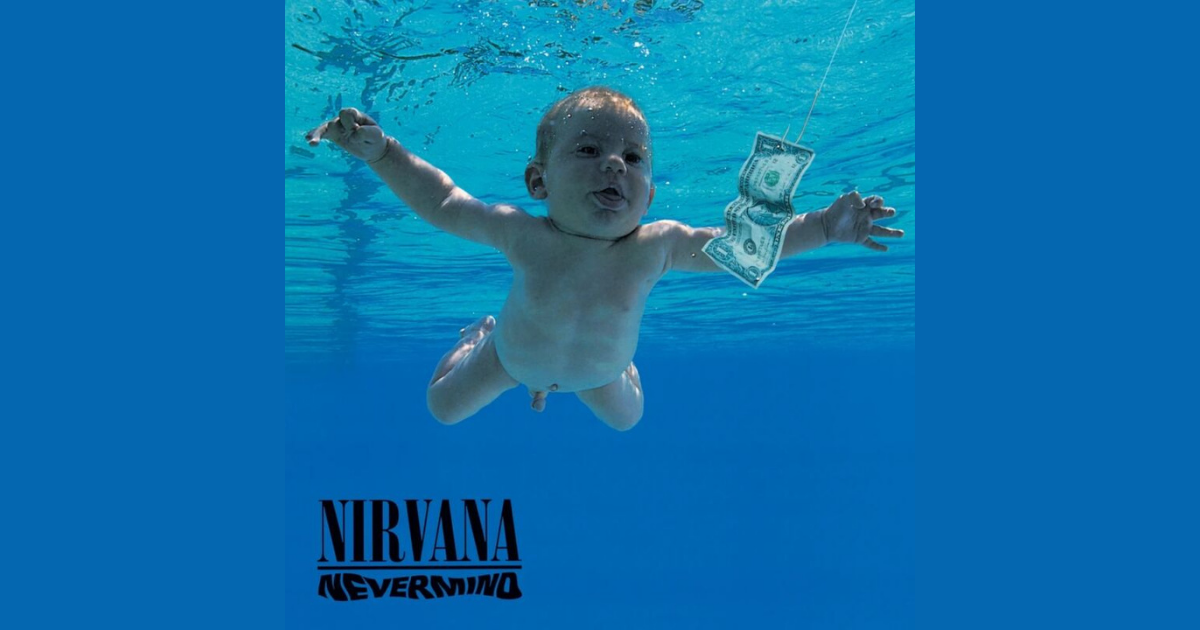

Written by: Mikala Lugen
The Baby On Nirvana’s ‘Nevermind’ Cover Album Is Suing For Child Pornography
Spencer Elden, the naked baby who appears on the cover of Nirvana’s iconic 1991 album Nevermind, is suing the band over “child sexual exploitation.”
The suit names DGC Records, Warner Records, Universal Music, Courtney Love, the estate of late Nirvana frontman Kurt Cobain, and then-band members Krist Novoselic and Dave Grohl. Additionally, Chad Channing, a drummer who had left Nirvana the year before Nevermind was released is also named, along with album photographer Kirk Weddle. Elden is seeking “the actual damages sustained, or liquidated damages in the amount of $150,000 per defendant, and the cost of action.”
“Nirvana exploited me when I was a baby to sell their music, but there is a person behind every image,” Elden told TMZ. “I’m just asking the band to do what they should have done 30 years ago and redact my genitals from the image out of respect for my privacy.”
Elden and his attorneys claim the image of him floating in a pool, naked, reaching for a dollar bill reflects child pornography and has suffered “lifelong damages” as a result. He claims he was sexualized as an unknowing child and in 2007 said in an interview he found it “kind of creepy that many people have seen me naked…I feel like the world’s biggest porn star.”
Over the years, Elden has been seen in the spotlight, giving interviews and was even given money to recreate the album cover for the 25th anniversary. However, he’s expressed his frustration with being excluded from the album’s success over the years. According to Elden’s father, Rick Elden, the family was paid $200 to throw Elden in a pool for the 15-second shoot, while the album has earned over 30 million sales worldwide.
The lawsuit alleges Elden “has been and will continue to suffer personal injury by the distribution and possession of child pornography,” including emotional distress and loss of earnings.